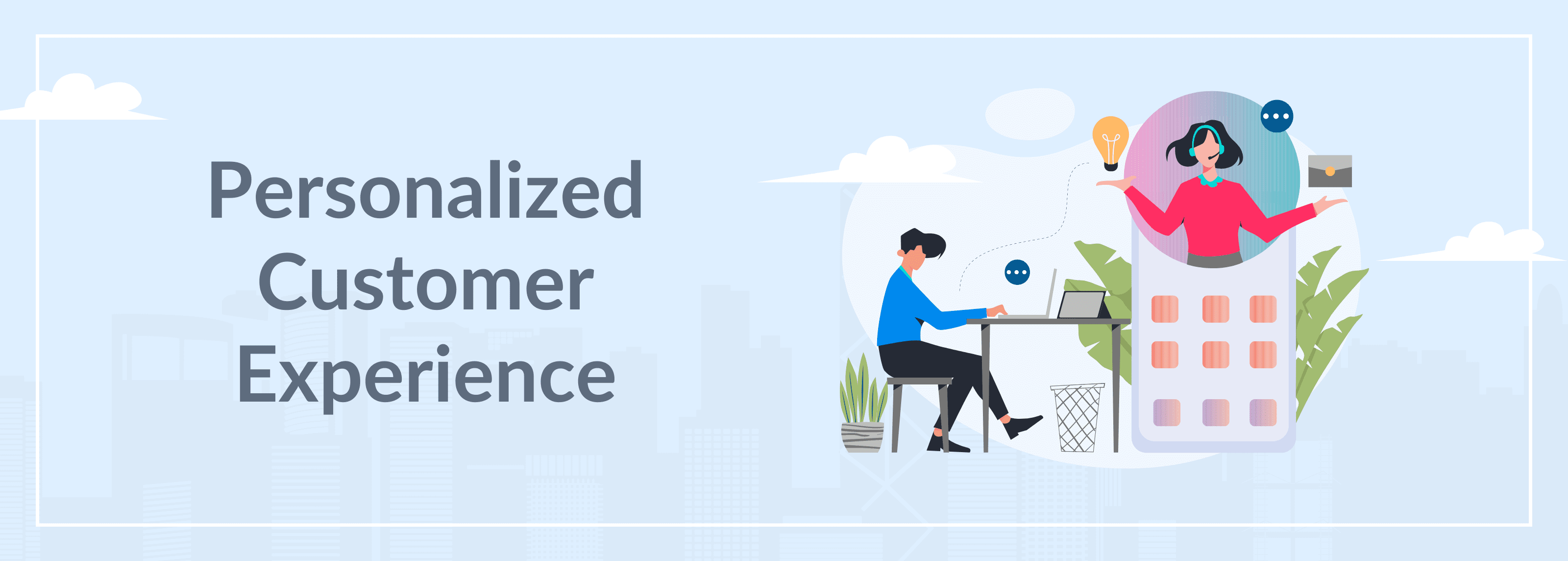10 Ways Contact Center Platforms Can Enhance Personalization for a Better Customer Experience
Personalization is crucial in customer experience because it helps create better customer engagement, loyalty, and satisfaction.
Here are some statistics that add strength to the importance of personalization:
Accenture states that 91% of consumers are likelier to shop with brands that provide personalized recommendations and offers.
According to a study by Evergage, 88% of marketers reported seeing measurable improvements due to personalization, with more than half reporting a lift greater than 10%.
A survey by Salesforce found that 75% of consumers expect companies to use their data to improve their experiences.
According to a study by Segment, 44% of consumers say they will likely become repeat buyers after a personalized shopping experience.
Personalizing customer experiences can lead to long-term success.
How Do Contact Center Platforms Help in Enhancing Personalization?
Contact center platforms are at the center of customer experience.
By leveraging advanced data analytics and CRM tools, contact center platforms can provide businesses with valuable insights into their customer’s behavior, preferences, and needs, enabling them to provide more relevant and engaging experiences.
Let us look at some of the ways by which contact center platforms can enhance personalization:
1. Customized Greeting
You can use customer data to greet callers by name, creating a personalized experience from the beginning of the interaction.
2. Customer History
Contact centers Omnichannel can provide agents with a single view of the customer through integration with CRMs and other best-of-breed solutions and bringing together all the interaction channels.
Now the agents will have a detailed history of a customer’s previous interactions with the company, allowing them to better understand the customer’s needs and provide relevant assistance.
3. Contextual Routing
Contact center platforms can use data to route customers to the most appropriate agent or department based on their specific needs and preferences.
For example, if a customer has bought a particular speaker model, he would be routed to an agent who is familiar with that model.
4. Predictive Analytics
You can use predictive analytics to anticipate customer needs and proactively offer personalized recommendations or solutions.
For example, a customer who frequently orders a particular product type can be sent an offer or promotion.
5. Feedback Collection
Contact center platforms can quickly help you collect customer feedback about their experiences and use that data to improve future interactions.
The feedback can be in the form of customer surveys, feedback forms, social media monitoring, and interactions across channels.
6. Recommendation Engine
Contact centers can use customer data to recommend products or services based on their purchase pattern.
You can use previous purchase history, browsing pattern, and demographic information, and compare it with similar users and what they have bought.
Take, for instance, Amazon. Their recommendation engine accounts for 30% of its sales.
7. Self-Service Options
Contact center platforms can collate all the queries it receives and identify the frequently asked questions by many customers.
These queries can be pushed to be managed by self-service bots and IVR menus.
Customers will also find accessing the information they need easy without interacting with an agent.
8. Agent Training
Contact center platforms can use analytics and machine learning algorithms to understand the gaps in customer interactions and the personalized experience your organization is providing.
To address these gaps, you can put your agents through comprehensive training and coaching to improve their performance and personalize the customer experience.
9. Customer Segmentation
Contact center platforms can use data to segment customers into groups based on their behavior or preferences.
This will allow you to provide tailored experiences to each group besides offering personalized loyalty programs.
10. Social Media Integration
Through its integration with social media platforms, contact center platforms can monitor customer conversations and engage with customers in real time.
This will allow you to provide personalized responses to customer queries and concerns, building stronger customer relationships.
Personalization is the differentiator in customer experience. It is no longer enough to know your customers’ names and addresses – they expect you to know their preferences, behavior, and history with the company and use that information effectively to deliver personalized experiences.
Businesses using contact center platforms to gather and analyze customer data can create tailored experiences that build strong and long-lasting customer relationships.
